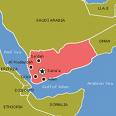YEMEN: World Bank “Economic Medicine” and the Impoverishment of Yemen

Not all bad economic policies kill people slowly, some do so very quickly. One such policy was the lifting of subsidies on fuel and other essentials in Yemen in 2005. Immediately after a presidential decision to bypass parliament and remove subsidies, people demonstrated their anger and many died as police and army forces fired into the crowds. The advice to carry out these draconian reforms was contemplated late in 2004 at a conference organised by the World Bank aimed at reducing the government deficit by removal of subsidies.
At the time of the conference, real GDP growth was anticipated at 3.9 percent. Inflation had gone down to 12 from 14 percent. Reserves were at 17 months of imports (7.5 billion) and the deficit was at 5.5 percent of GDP. External debt was at 41 percent of GDP or about 5 billion US$. Unemployment figures were flimsy, but there were two figures set forth: either 18 or 34 percent with the latter estimate being slightly more acceptable. These were relatively encouraging figures for Yemen, which is a Least Developed Country. In the midst of abjection, unemployment figure are meaningless anyways. Nearly half of Yemeni children suffer malnutrition. The average salary for a family of six was about one hundred dollars a month in the city- while conditions are worse in the countryside. More than half of the population reside in absolute poverty.
The conference proceedings spoke of reform based on good governance and investment promotion including FDI, private/public partnerships, quota for women, diversification, further liberalisation and banking/financial development. Only tangentially did the conferencier speak of reducing the budget deficit from 5 to 3 percent by levying a consumption sales tax of 10 percent and lifting subsidies on fuel, which incidentally was the real purpose of the event. In informal discussions following the conference late in the evening, it transpired that it was virtually impossible to pass a tax-hike and subsidy-removal bill through the populist Yemeni parliament. So, in an underhand way and with the able assistance of the Minister of Planning, the conferencier recommended that the bill be passed by presidential decree. In mid-2005, the now-ousted president, A.A. Saleh, put into effect the baleful measures. Immediately, people poured into the streets and the massacres started. That was one of many rehearsals for the Arab spring.
The real aim of these reforms was not to redress a minor sixty-million dollar deficit by lifting subsidies and imposing an indirect sales tax on necessities. To be understood, these measures have to be thought of outside the price system and in their social context. Prices are not given but made and moulded across real time by a structure of power from which the labouring classes in countries like Yemen have to be excluded. That indirect taxation is countercyclical or that subsidies cost little and can be underwritten by future earnings are all too easy to grasp. Indeed, on account of a sudden rise in oil prices alone, Yemen recorded a six percent real GDP growth in 2005, and had it not been for the revolt, the deficit for that year could have been weathered.
What mainstream doctrines obscure is that socially, Yemeni labour and resources have to be continuously undermined and cheapened. Indirect taxation in a country like Yemen criminalises the majority of the labouring class and readies it to be assaulted and subjugated. Removal of subsidies on basic consumption items starves and cheapens human life. More recently, half a million children in Yemen could die or suffer physical and mental damage as a result of malnutrition. These polices dislocate socially with the aim of grabbing and de-valorising economically. The labouring classes in Yemen have to be denied control of their resources and readied to enter the global accumulation system as material of capital via its encroachment side.
Two years after 2005, the very conferencier who led the assault on the working population in Yemen added insult to injury by stating that ‘Arabs’ are to blame for their own state of underdevelopment. They were corrupt he says. Indeed, for the majority of Yemenis who spend more than sixty percent of their income on basic foods, evading a flat sales tax is an illegal act. It need not be said that the development of an argument solely from the standpoint of the reified notion of nationality is racist; the Arab Revolts have shown that there are as many types of Arabs as there are many types of social classes. The Arab labouring classes were excluded from the formulation of policy by outright repression.
The Arab ruling classes conjointly with Western financial elites were capable of drawing and implementing pauperising policies at every stage in recent neoliberal history leading to rebellions. The Arab, similar to the American or the Chinese, does not exist in the ‘abstract’ and outside a social context. In these social formations, which are fraught with contradictions, development policies encapsulated decisions that were taken by the few against the many in the Arab world. They resulted in an odious reverse-development or de-development, for which the Arab working people cannot be blamed.

